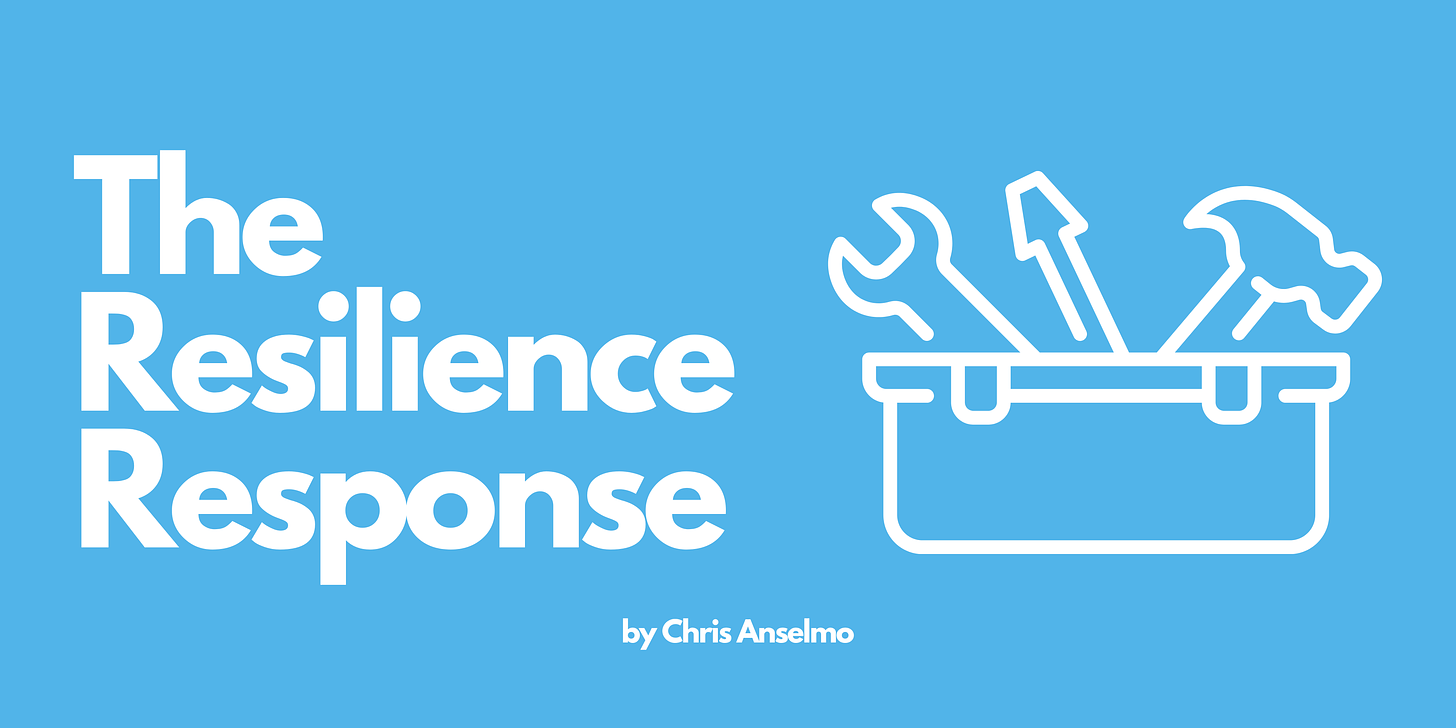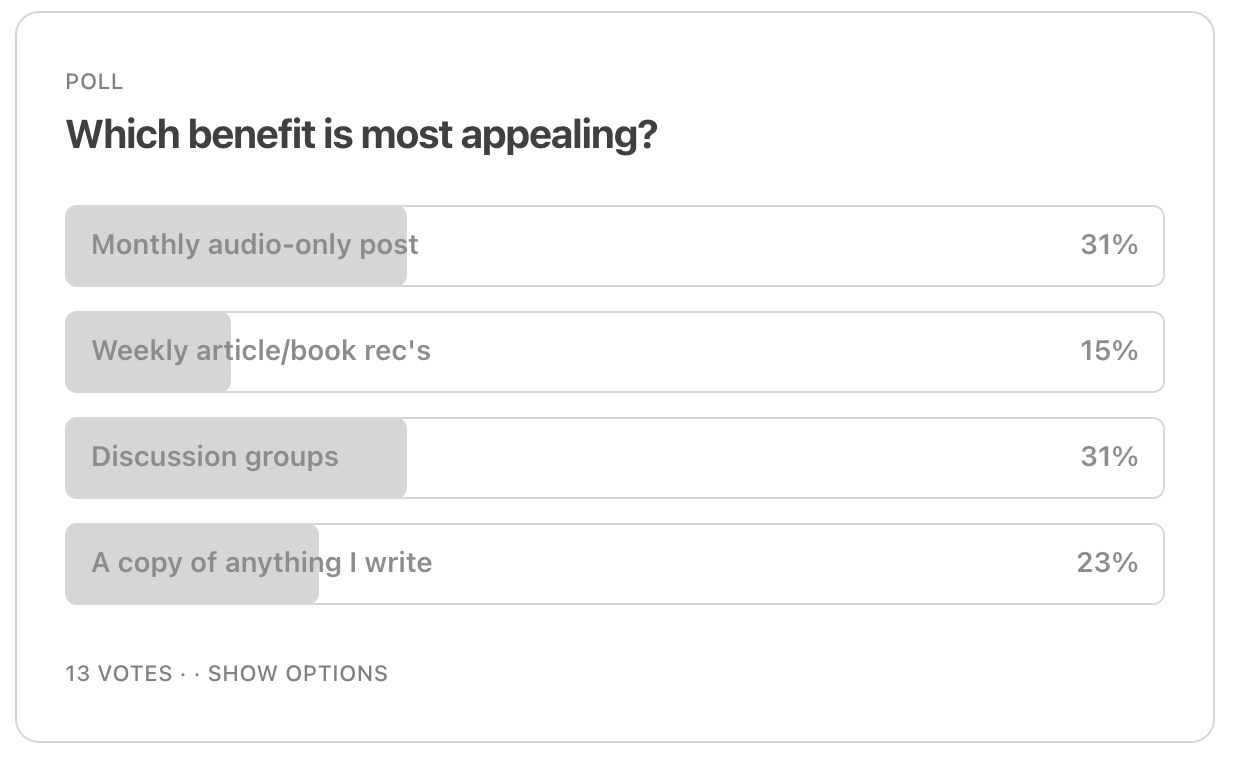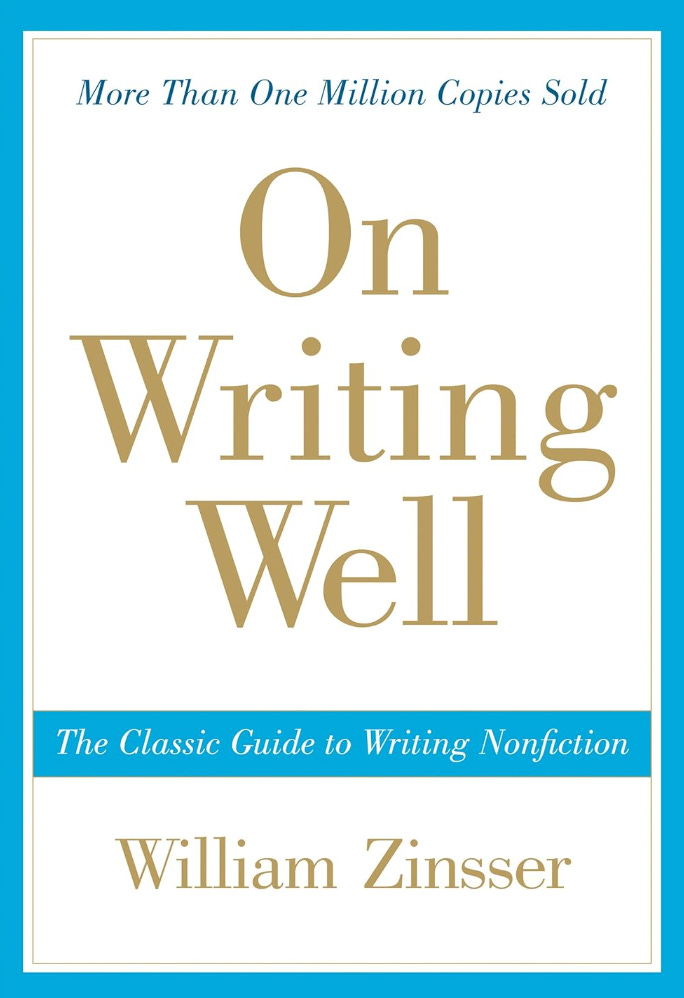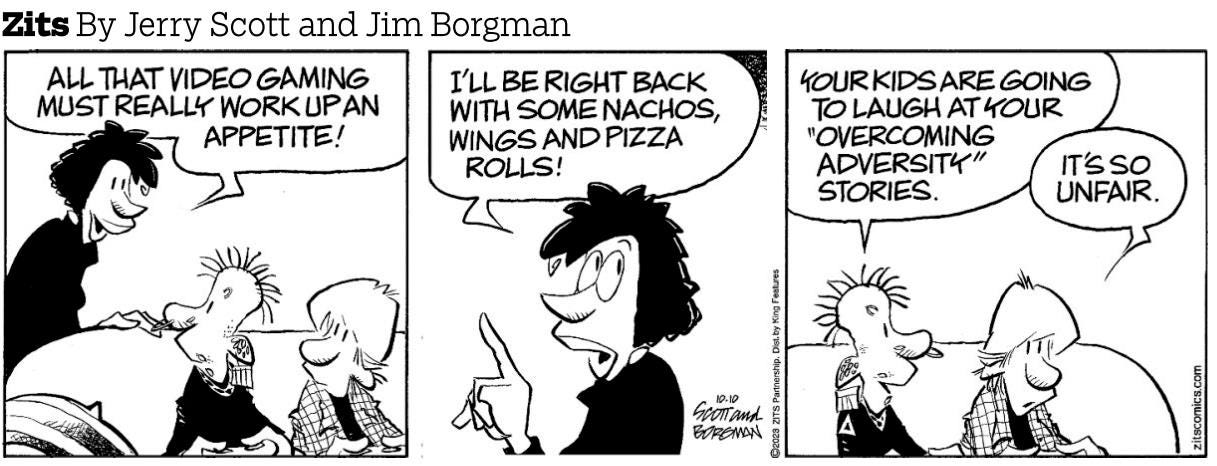The Resilience Response #8 - October 21, 2023
One of the most helpful communication tips I've received, Sue Deagle on learning to surrender, a book that's changed how I write, and more
Happy Saturday!
Welcome to The Resilience Response, a newsletter that provides the tools and resources you need to face adversity with confidence.
Thank you to everyone who took the survey a couple weeks ago about what new paid benefits you’d like to see. Here are the results:
This is helpful feedback as I determine next steps.
The first benefit I’m going to add is the audio recording, which, instead of once a month, will appear at the end of each Wednesday newsletter. This will be a 5-10 minute “behind the scenes” extra where I discuss the article topic in greater detail and share a few bonus stories and resources.
Next week, this recording will be free for all readers so you can get a sense of what it’s like. In the future, it will only be available to paid subscribers.
I’m excited to give it a try! (If it doesn’t work, assume “technical difficulties” or my own incompetence.)
Here’s what’s on deck this week:
🔧 For the Toolkit: When writing or speaking to a group, focus on one person
🎙️ In the First Person: Sue Deagle on learning to surrender
📚 What’s Helped Me: On Writing Well, by William Zinsser
✍️ Weekly Intention: Take one small step towards acceptance
🎁 Outtakes and Extras: A helpful rare disease database, the benefits of snoozing, and more
🔧 For the Toolkit: When writing or speaking to a group, focus on one person

Many situations in life are overwhelming. When we realize the magnitude of what’s before us, it’s sometimes difficult to meet the moment.
For many of us, this happens when we have to communicate to a group of people. Whether it’s writing a Substack newsletter, giving a speech to an audience, or appearing on a local news program, the thought of other people judging what we have to say is terrifying.
Even if we have the most compelling, meaningful message to share with the world, or a cause worth advocating for, an audience of five people can be just as scary as five hundred or five thousand. Amateur or expert, this unease never quite goes away.
For many years, I was a wimp when it came to public speaking. I would see people looking back at me and melt down inside. Because I was so nervous, my voice seemed to crack every other word.
Over the years, I have received different kinds of communication advice1 but the most effective strategy I’ve found is to focus your attention on one person.
This can work in a few different ways. For example, if you are writing an email or message that many people will see (such as a group chat), look for someone you know on the distribution list and pretend you are writing just to them. Think about how they’d receive the message and how they’d react to what you are trying to say. If you don’t know anyone, look up one of the recipients on LinkedIn so you can put a face to the name. This helps to humanize your task and make it feel like you have at least one person in your corner.
The same goes for speaking. If there is a familiar face in the audience, focus on them. Or, if you don’t know anyone, find someone who seems friendly or cheerful (in other words, not scowling at you) and do the same thing. Although you don’t want to stare only at them, let this person be the face you return to whenever you start to feel nervous.
Over time, this will become second nature.
🎙️ In the First Person: Sue Deagle on learning to surrender
Every week,
challenges me to re-examine topics I thought I knew well, especially those related to adversity.In this excellent piece, Sue writes about how she learned to surrender to life and accept events out of her control. As someone who always liked to plan and get things done, Sue’s life was turned upside down when she lost her husband Mike in 2016. In an instant, her illusion of control was gone for good.
This piece traces her journey from that awful day and how she learned to embrace the inherent unpredictability of life. Over time, Sue has come to appreciate the power of surrender and the opportunities that come along with letting go of the way things used to be. One of her favorite sayings is a mantra from author Sarah Lewis: “Give over, don’t give up.”
As Sue has shown, every setback and tragedy, no matter how painful, can be an opportunity to grow and evolve.
“Surrender is essentially just a pivot to ensure the wind of reality is always at our backs.”
📚 What’s Helped Me: On Writing Well, by William Zinsser
In the early days of
, I wrote a few posts that were, let’s just say, long. Brevity has never been my strong suit. Although I love to write, I frequently feel like I need to brush up on my skills.A few months ago, I saw someone on social media recommend the book On Writing Well, by William Zinsser. Intrigued, I checked it out of the library.
After a few pages, I realized this was a book I needed to own.
Zinsser — a former writer, editor, and Yale professor — covers a lot of ground in On Writing Well. He shares the ins and outs of writing different forms of nonfiction, from humor to memoir to art criticism. Each form has its own best practices and nuances. Zinsser provides dozens of examples of what to do, but just as important, what not to do.
This book has challenged me to always keep the reader’s point of view top of mind. (Not that I wasn’t doing this before but it’s a helpful reminder!) Zinsser frequently laments how writers turn simple terms into complex jargon. He also urges writers to cut out any unnecessary fluff. More does not always equate to better.
This book has already helped me become a more concise writer. Every time I reference it, I learn something new.
Although parts of the book are a little outdated, there are so many pearls of wisdom. Here are three of my favorites:
“For the nonfiction writer…when you’re ready to stop, stop. If you have presented all the facts and made the point you want to make, look for the nearest exit.”
“Most first drafts can be cut by 50 percent without losing any information or losing the author’s voice.”
“Clutter is the laborious phrase that has pushed out the short word that means the same thing.”
✍️ Weekly Intention: Take one small step towards acceptance
I loved this line in Sue’s piece: “[Surrender requires] giving up on some dreams and expectations and allowing something new to bloom in their vacated space.”
Is there something in your life that’s out of your control, that you’re struggling to accept? Maybe it’s a disease, the loss of a loved one, or the state of the world. Is whatever you’re struggling with preventing you from seeking new opportunities or enjoying life?
Acceptance is a process; it’s not a switch you can turn on and off. Don’t worry if you can’t accept something immediately; it doesn’t mean there’s anything wrong with you.
This week’s goal is to take a baby step towards surrender. If you are able, take some time to think about your situation. Specifically, think about how acceptance can have a positive impact on your life. What opportunities might “bloom” once you learn how to let go of the situation and move forward?
Hopefully, this exercise will help you start to see that you can make it through to the other side.
I’ll share an example from my life in the comments. Acceptance is something I’ve struggled with for many years.
If you are comfortable sharing an example, I’d love to hear from you.
🎁 Outtakes and Extras
One of the frustrating aspects of living with a rare disease is finding basic information. Last week, I learned about a resource called Librarey, which is a database of different resources for rare disease families. If you are looking for information on a specific disease, or programs and resources in your area, this is a helpful site.
My mom sent this to me the other day and it put a smile on my face:
I hope you have a great week, as much as you’re able to. I know times are tough.
Picturing the audience in their underwear has too many drawbacks, trust me.








My example:
For the longest time, I struggled to accept that there was nothing I could do to reverse the symptoms of my disease. I held out hope that an effective treatment was just around the corner. It left me in a holding pattern where I couldn't move forward with life because I wanted to regain my strength first. Once it became clear this wasn't going to happen, I couldn't accept it. I stagnated for several years. Eventually I reached a point of acceptance and was able to pursue my goals. It wasn't an epiphany as much as a gradual surrender to reality.
Love Sue’s piece, and the comic strip, and the Zinsser book (which I just bought based on your rec!).
This week’s act of surrender: I got a storage unit and filled it with 15 boxes from my mom’s house. I’d successfully dealt with another dozen already, but the paring-down process was starting to weigh on my psyche...and my living room had become unlivable.
I decided that moving stuff into storage wasn’t “giving up” or “accepting defeat” but rather giving myself grace with the whole process. I’m glad I did! 🙌